Vocabulary Enrichment Easy Worksheets for 4-Year-Olds
5 filtered results
-
From - To
Discover our engaging "Vocabulary Enrichment Easy Worksheets for 4-Year-Olds," designed to stimulate young minds and enhance language skills! Our printable worksheets are tailored specifically for preschool learners, offering a fun and interactive way to expand their vocabulary. Through colorful illustrations and relatable examples, children will learn essential words in context. Activities include matching words with images, fill-in-the-blank exercises, and much more, all promoting active participation and learning. Perfect for parents and teachers alike, these worksheets make vocabulary learning enjoyable and effective, paving the way for improved communication skills and a love for language at an early age. Start enriching vocabulary today!
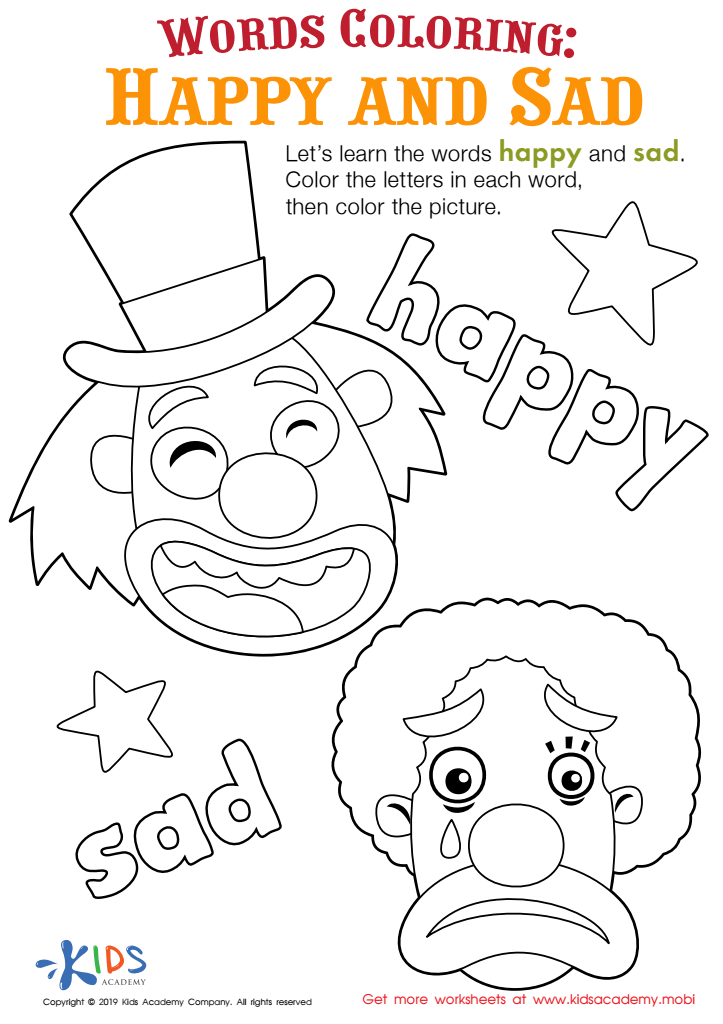

Happy and Sad Words Coloring Worksheet
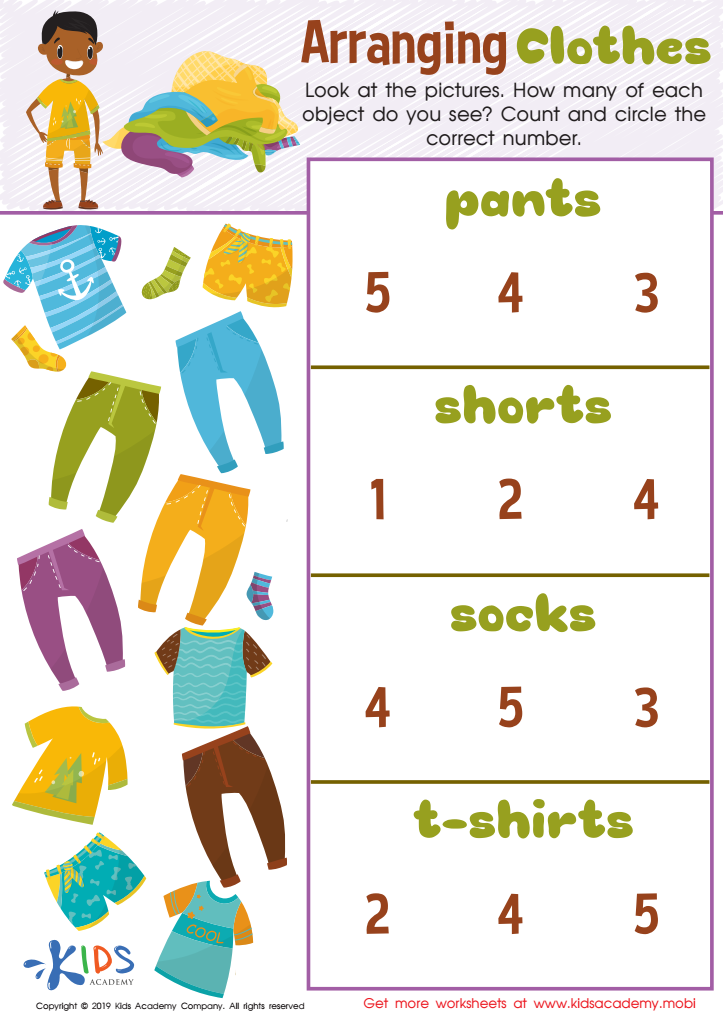

Arranging Clothes Worksheet
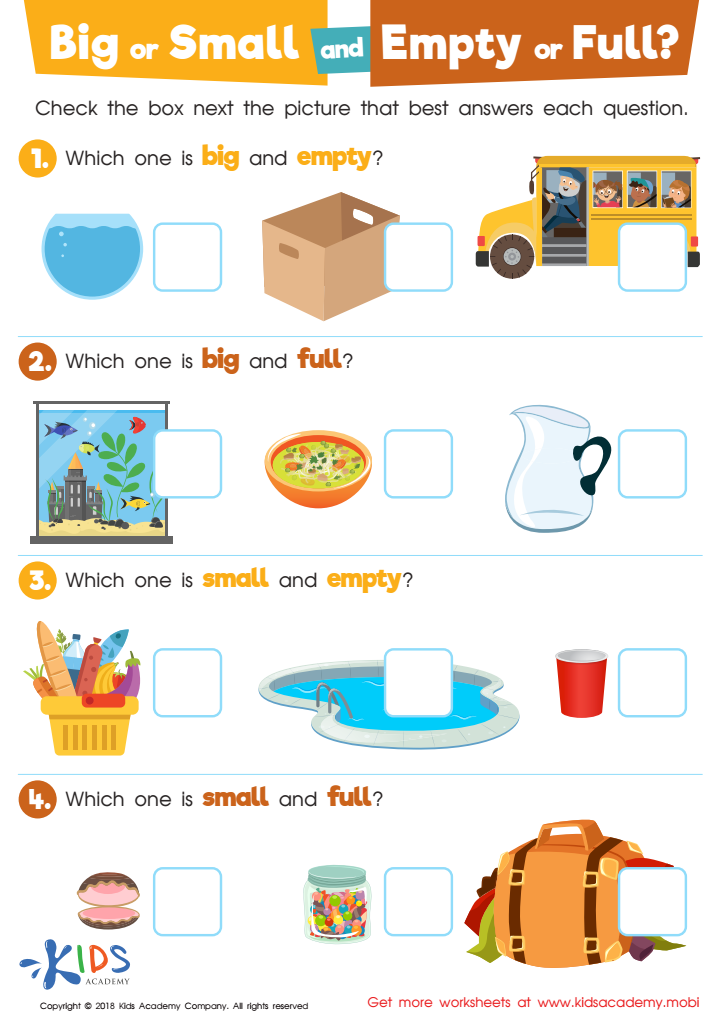

Big or Small and Empty or Full? Worksheet
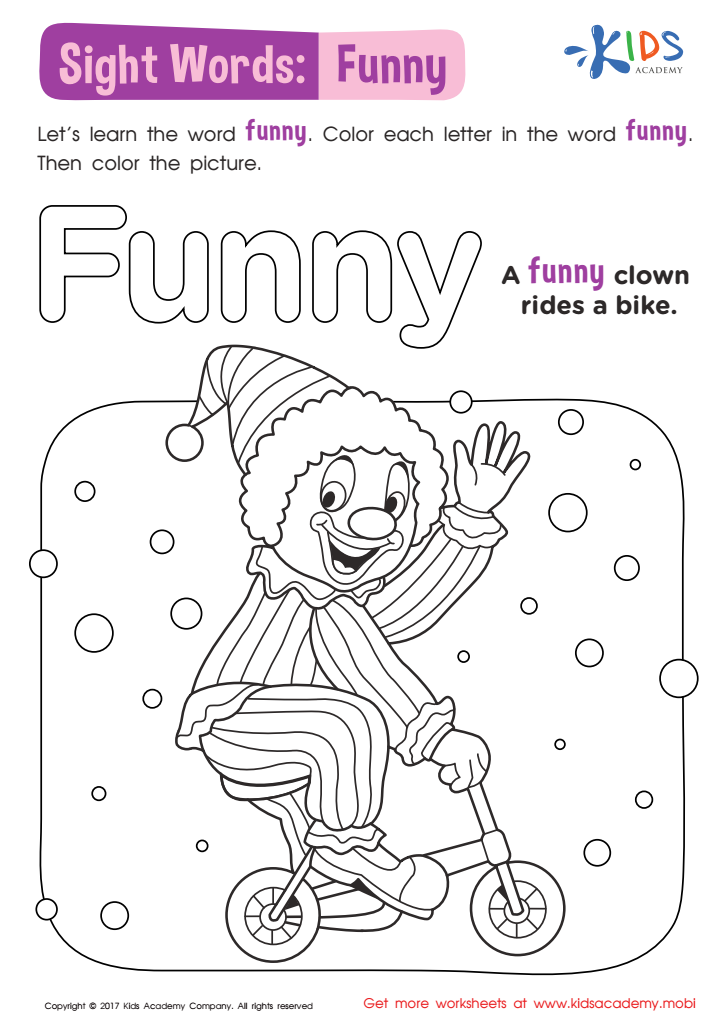

Funny Worksheet Sight Words Worksheet
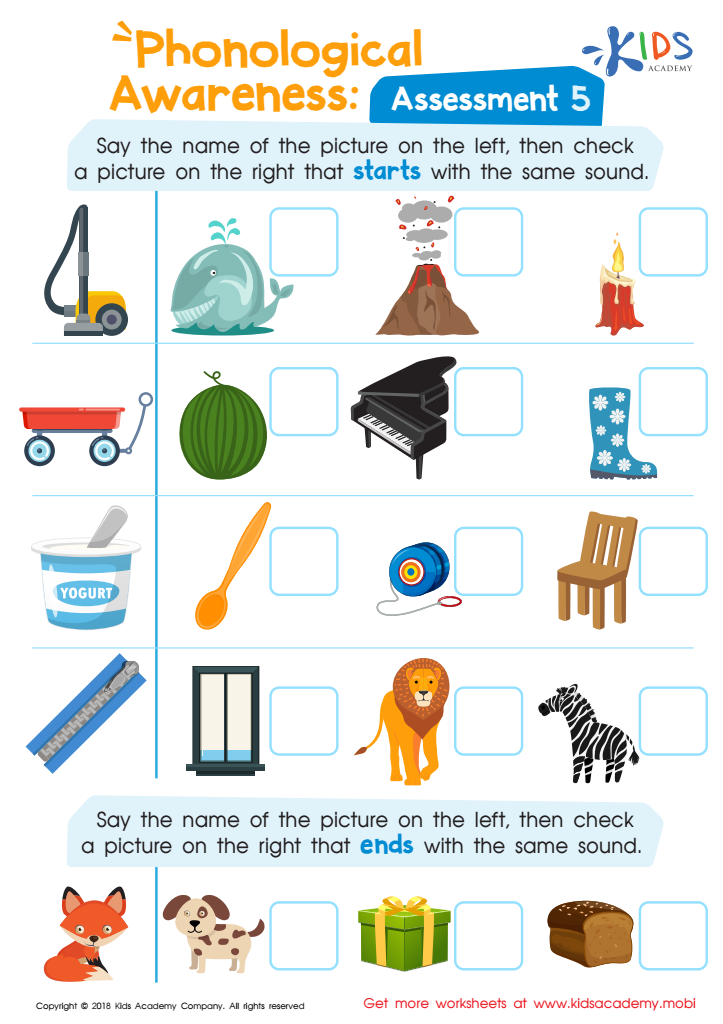

Phonological Awareness: Assessment 5 Worksheet
Vocabulary enrichment for 4-year-olds is crucial for several reasons. At this developmental stage, children are rapidly expanding their language skills, forming the backbone for effective communication and academic success. Enriching vocabulary fosters cognitive development, enabling children to better express their thoughts, feelings, and ideas. By broadening their vocabulary, children can improve their reading comprehension as they embark on early literacy journeys.
Additionally, a rich vocabulary enhances social interactions. When children can articulate their needs, emotions, and opinions, they are more likely to engage positively with peers. This contributes to better social skills and helps in conflict resolution, thus fostering healthy relationships.
Moreover, children with enhanced vocabulary are better equipped to grasp new concepts and engage in critical thinking. This foundational skill not only supports early education but also sets a positive trajectory for lifelong learning.
Parents and teachers can play a pivotal role by integrating fun and engaging vocabulary-building activities into daily routines. This can include reading aloud, interactive storytelling, and games that introduce new words. By prioritizing vocabulary enrichment, adults can significantly influence children’s linguistic abilities, preparing them for future academic and social success. Investing in this area ultimately leads to a more confident and capable learner.
 Assign to My Students
Assign to My Students








.jpg)










